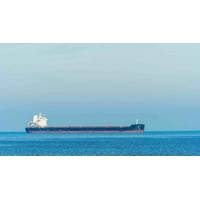Foreign Investors Reduce Exposure to Nigeria Risk
By Tosin Sulaiman, Reuters
Foreigners stayed away from Nigeria's latest Treasury bill auction, the first since the suspension of the central bank's graft-fighting governor, in a sign that investor confidence is yet to recover after the banker's removal.
Nigeria offered 180 billion naira ($1.1 billion) in Treasury bills on Wednesday, with a similar amount maturing this week. It sold 275.09 billion naira, with yields on the 182- and 364-day papers rising further above 13 percent, the central bank said on Thursday.
Traders said foreign buyers remained on the sidelines and demand was dominated by less risk-averse local investors drawn by the attractive yields.
Foreign participation was "very marginal," said one analyst. "It's probably that as those bills mature some international investors won't roll over the position in the new auctions, so they'll just take their FX and leave," he said, asking not to be named.
Further debt redemptions of at least 320 billion naira are expected in Nigeria this month, providing a barometer of foreign investor sentiment since Feb. 20 when President Goodluck Jonathan suspended respected central bank chief Lamido Sanusi, citing "acts of financial recklessness".
Many saw the suspension as an act of political revenge by the president, who removed an outspoken critic of his government's record on corruption in Africa's top oil producer.
Offshore investors had been pulling back from Nigeria before Sanusi's suspension amid a broader retreat from emerging markets. But the president's action further undermined faith in policy stability in Africa's second-biggest economy at a time of heightened uncertainty before elections in February next year.
Sanusi had been due to step down in June. Jonathan has nominated Godwin Emefiele, the managing director of Zenith Bank , Nigeria's third-biggest lender, as his successor.
With more debt due to mature in the weeks ahead and limited liquidity in the secondary market, more outflows are likely this month as investors await the return of their money, said Ayo Salami, chief investment officer of asset manager Duet Group's Africa Opportunities Fund.
"You don't have sufficient liquidity to be able to exit by selling in the secondary market," he said. "The worst of the outflows has not happened."
Another concern is that interest rates could rise if the central bank feels that current policy efforts are failing to stabilise the naira, which has weakened this year amid emerging market volatility and after Sanusi's removal.
Rate rises would push down prices on the secondary market.
"Given this scenario any investor (foreign or local) looking to exit via the secondary market would likely make a loss. So, better to be out of the market completely rather than risk making a loss if forced to exit swiftly," said Angus Downie, head of economic research at Ecobank.
"Not Tempted Back"
Investors will need more reassurance about the naira's stability and the pre-election policymaking environment before being lured back.
"Our February client survey shows investors having moved underweight FX in Nigeria for the first time in over two years," JP Morgan said in a research note.
Sanusi had warned that fiscal leakages, including what he said was the state oil company Nigeria National Petroleum Corporation (NNPC) failing to remit $20 billion it owed to federal government coffers, were undermining the central bank's ability to stabilise the naira.
Although the bank has defended the currency by selling dollars, there are doubts about how long that can last as foreign exchange reserves have fallen to a 19-month low of $39.72 billion.
Jeremy Brewin, head of emerging debt at ING Investment Management, said he had reduced his exposure to Nigeria even before Sanusi left.
"We moved out of Nigerian risk late last year and so far have not been tempted back," he said. "You are giving up high yield but the possibility of currency depreciation cannot be underestimated."
Nevertheless, despite the upheaval at the central bank, Nigeria's economic fundamentals remain strong compared to other frontier markets given a relatively low debt-to-GDP ratio and budget deficit, said Philippe de Pontet, Eurasia Group's Africa director. The economy is forecast to grow around 7 percent this year.
"Nigeria still has a pretty positive story to tell," he said. "If you look at other markets in sub-Saharan Africa, by and large they're facing pretty significant twin deficits. They also have currency pressures, thinner FX reserves."
Still, investors would be more comfortable sitting and waiting if elections weren't imminent, said Michael Cirami, an emerging markets fund manager at Eaton Vance Corp.
He noted that many who poured into Nigerian bonds after the country was included in a key JP Morgan emerging market bond index in October 2012 are unfamiliar with the country and may be more skittish.
"The natural reaction is to cut and run," he said. "I don't see why you wouldn't see more outflows given some of the changes that have taken place."






